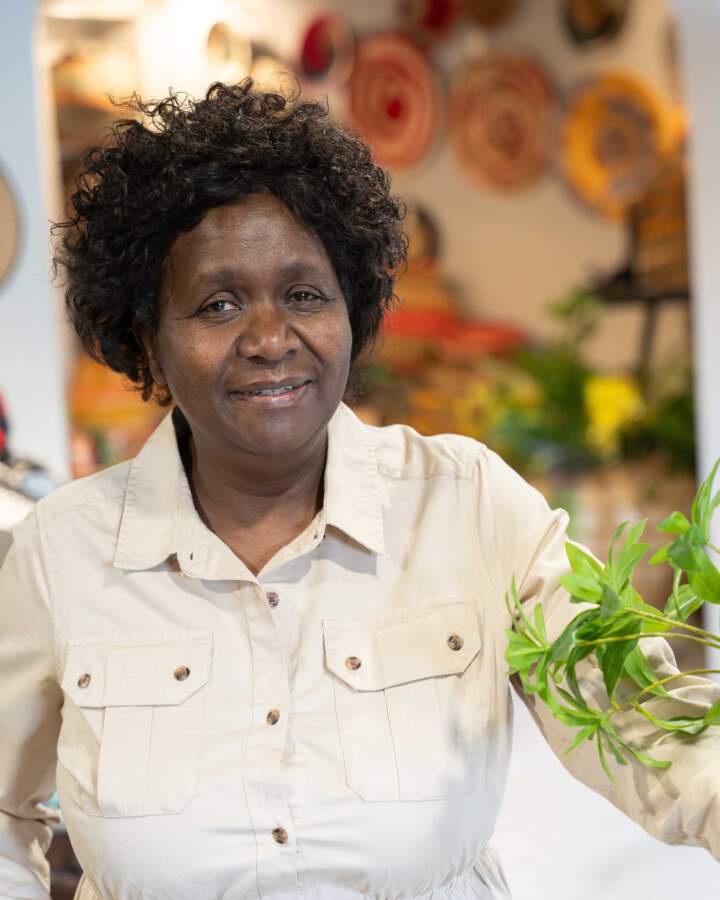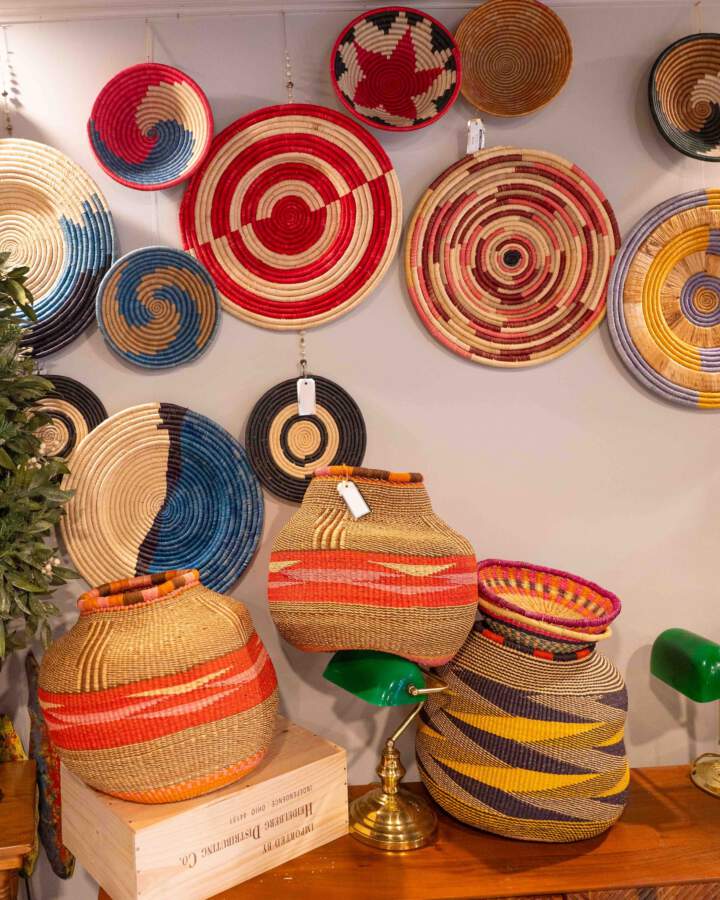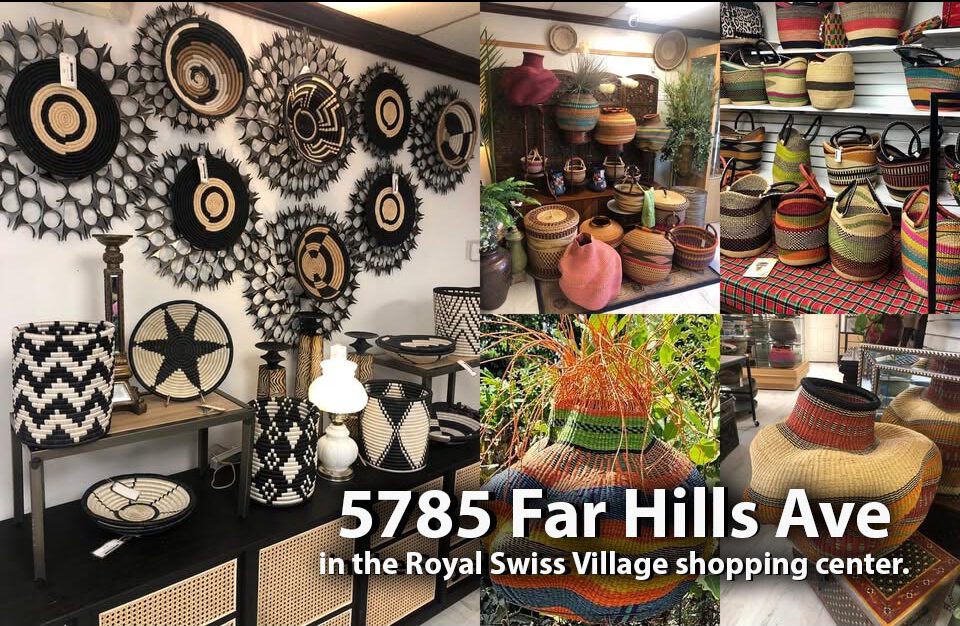 Conversation with Sandra Simi at Safari Treasures. Sandra sometimes shops in Belmont at Anita Nzigiye’s Ikaze East African Market, which is how I got her name.
Conversation with Sandra Simi at Safari Treasures. Sandra sometimes shops in Belmont at Anita Nzigiye’s Ikaze East African Market, which is how I got her name.“I left Kenya 30 years ago but opened this shop just over 2 years ago. We sell many things from Africa but our main business is woven baskets.”
“Basket weaving is more than a craft in Africa. It represents tradition and the power of working together. Nothing shows that better than the baskets I have from Rwanda. That country suffered through a terrible genocide and in the aftermath the government started a reconciliation program. As part of that program Hutu women and Tutsi women weave baskets together.”
“I’ve traveled across Africa meeting weavers and talking about what designs might fit the U.S. market. Those baskets you’re photographing now are from Ghana and made out of elephant grass. It’s one of the strongest plants ever.”

“Those over there are from Uganda. They eat a lot of bananas in Uganda and make baskets out of banana leaves. Those are from Rwanda. They’re made from sisal. These are from Sierra Leone. They include recycled plastic to reinforce their baskets and to add color. That makes them durable, but nothing is as durable as the baskets made from elephant grass. Those can be used to carry heavy objects for decades.”

“I have been disappointed in sales at my shop, so on weekends I sell at art fairs and craft fairs. Those have been great for me. I also sell at the 2nd Street market on weekends when I’m in town. There is also one special kind of basket that I sell at the gift shop at The Contemporary Dayton. It’s difficult to make. The weaver tightens some of the strands to get a wave-like shape. Each of those baskets is special, truly one of a kind.”

Before leaving to talk with Sandra I showed the shop’s social media photos to my wife. She decided to go to the shop with me, and now there’s a basket made from elephant grass on our dining room table.
Sun – Fri 10am – 5pm
closed Saturday
